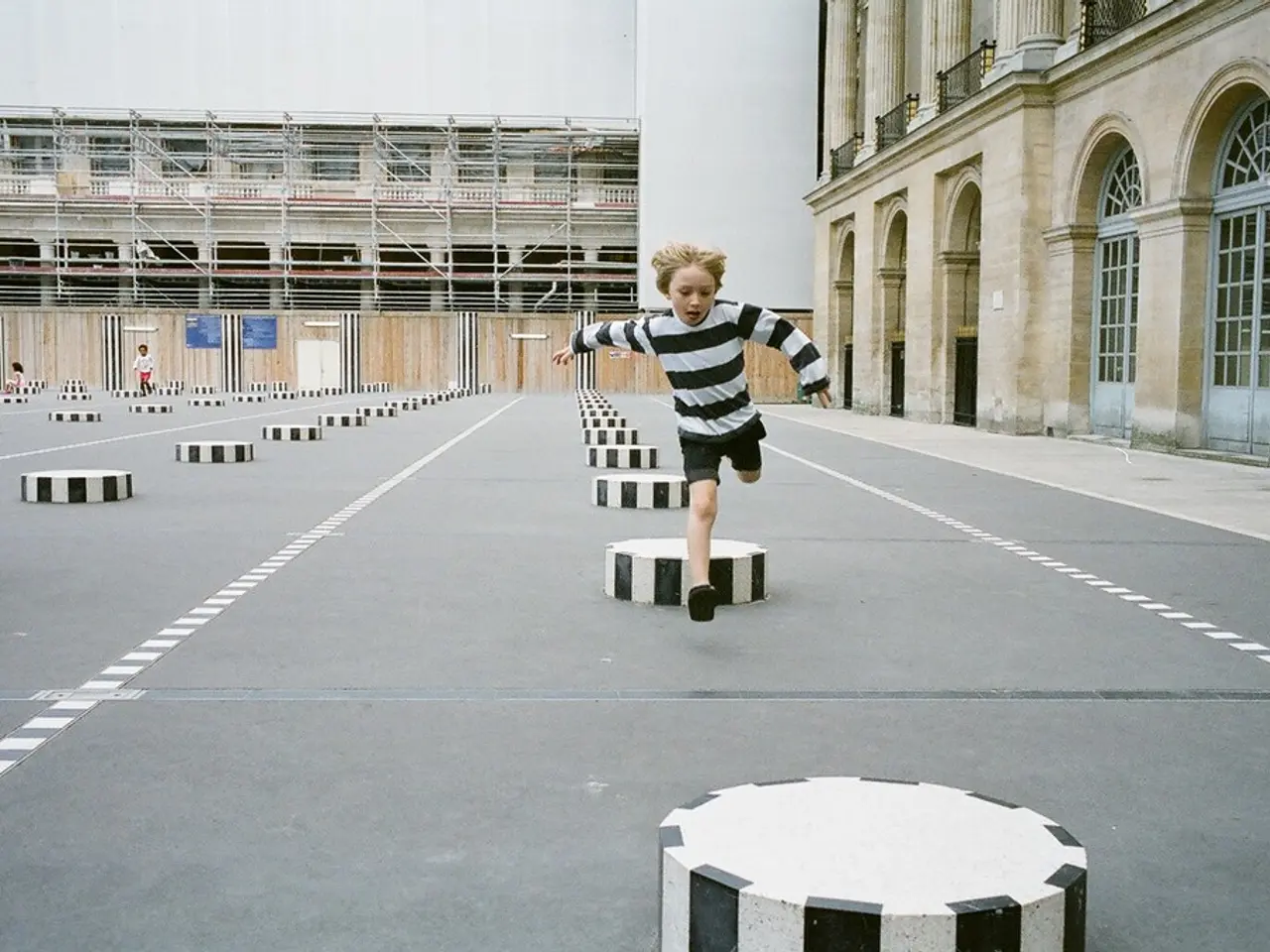Montessori Approach in Action: Independence, Concentration, and Authentic Learning Materials
The Montessori method, a unique educational approach developed by Maria Montessori in the early 20th century, is gaining popularity for its focus on children's natural curiosity, independence, and hands-on learning. This method, which views children as eager learners capable of self-directed activity, is being adopted by families and schools worldwide.
Key principles of the Montessori method include a prepared environment, hands-on, sensory-based learning, individualized learning, mixed-age classrooms, emphasis on social skills, the teacher's role, intrinsic motivation, and independence.
A prepared environment is crucial in Montessori classrooms. Classrooms are designed to be calm, beautiful, and inviting, with materials accessible at the child’s eye level to encourage autonomy and exploration. Specialized Montessori materials engage multiple senses, allowing children to explore concepts concretely and self-correct their work, fostering deep understanding.
Individualized learning is another key principle. There are no rigid grade levels; each child progresses at their own pace based on developmental readiness and interests, allowing personalized education in reading, math, and other subjects. Mixed-age classrooms enable older children to mentor younger ones and promote social development and collaboration.
The Montessori method also places great emphasis on social skills. Grace, courtesy, and community life are integral, teaching children manners, conflict resolution, cooperation, and respect within a nurturing social environment.
Teachers in Montessori classrooms observe and guide rather than deliver direct instruction, using techniques like the "Three Period Lesson" to support gradual learning of new concepts. The method encourages children to take initiative in their learning, fostering self-discipline, concentration, and leadership skills.
Recent studies have shown the effectiveness of the Montessori method. A 2022 study published in Child Development reported significant improvements in school readiness across multiple domains for marginalized girls in rural Nigeria who participated in a Montessori-based early childhood education initiative. A 2006 study conducted by researchers at the University of Virginia found that Montessori students exhibited advanced executive function skills, such as flexible thinking and self-control, compared to peers in traditional educational settings.
In practice, families can bring Montessori principles home by giving their children real materials, inviting them to help with daily routines, and respecting their concentration. Montessori-trained guide Lucia Ferraro observes that giving children real tools and meaningful choices leads to great concentration, precision, and pride, even at three years old.
The STEM Baby Library, featuring soft, open-ended materials arranged by size, color, and texture for infants and toddlers to explore patterns, order, and cause and effect, is an excellent example of how Montessori principles can be applied at home.
Resources for learning more about Montessori include the American Montessori Society, The Montessori Notebook, Montessori and the Brain, and Science Magazine articles on Montessori Education Outcomes.
In summary, Montessori education combines a prepared physical space, hands-on materials, child-centered individualized pacing, and a community-oriented social environment to support holistic development of each child. It aims to cultivate lifelong learners with confidence, independence, and a love of learning.
- Visiting the 'Museo dei bambini', a children's museum in Italy, offers an opportunity to observe Montessori principles in action, as it provides a space forchildren to engage in self-directed learning through science- and lifestyle-focused exhibits, aligned with education-and-self-development goals.
- As part of a comprehensive lifestyle choice, families can embrace the Montessori method by incorporating elements of individualized learning, hands-on exploration, and social skill development into their daily routines, fostering a love for learning and promoting education-and-self-development in their little ones.




